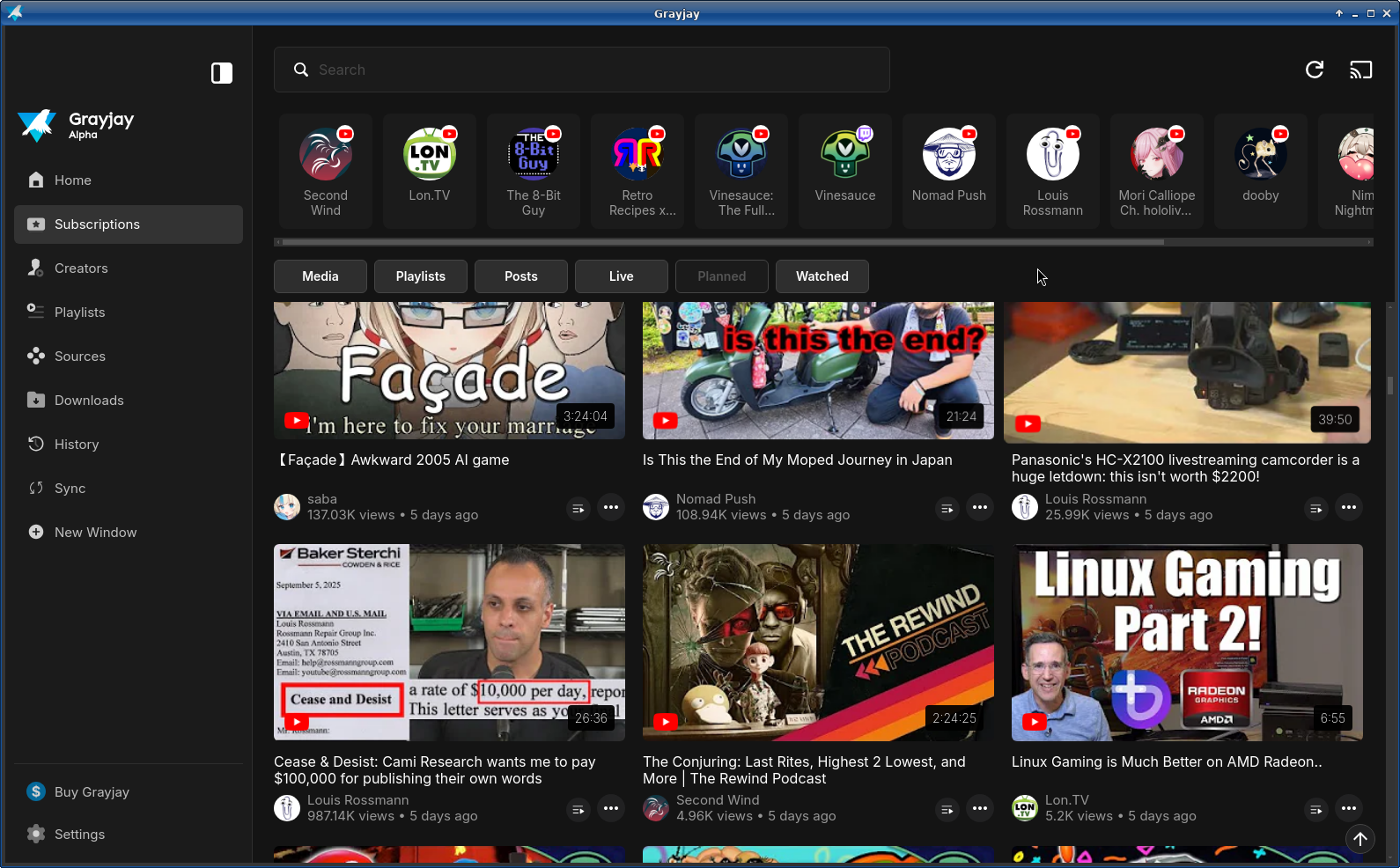I'm between articles right now, but here's what I'm thinking about (spoilers, it's bad smartphones)
Hello. I see now the pattern I have been falling into a lot on this blog: being someone who does not run this website to…
Read more →I have finally given up on Wordpress altogether and am using a simple (and amazing) terminal theme and running on Publii. I'm really enjoying it so far. Any tips on using it, please feel free to reach out to me on Bluesky or Mastodon the Fediverse.
Hello. I see now the pattern I have been falling into a lot on this blog: being someone who does not run this website to…
Read more →
Recent GrayJay builds have been pretty solid on desktop, but the Android version had been quite stable and functional for many months now. And it…
Read more →
If you're a fan of deckbuilders and space battlers, this one's a must-try! Quick Facts Publisher: No More Robots Platform(s): Steam Controller support (A-F): B+.
Read more →This is a new post to test what's going with exporting from my old WP site. Exciting, isnt it? Actually it is! I am now…
Read more →Just some more notes from my experiments with Void Linux, particularly on a converted Chromebook. I have to first shout out as always the incredible…
Read more →Just going to throw some stuff online for my own recollection, since I keep needing to create these files: Void Linux Netbird init script for…
Read more →